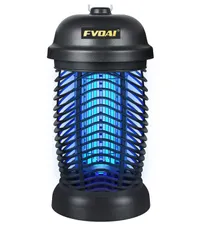How to get rid of horse flies – 5 secrets from pest control pros
Make sure you are not accidentally creating a horse fly haven by taking note of these methods recommended by professionals

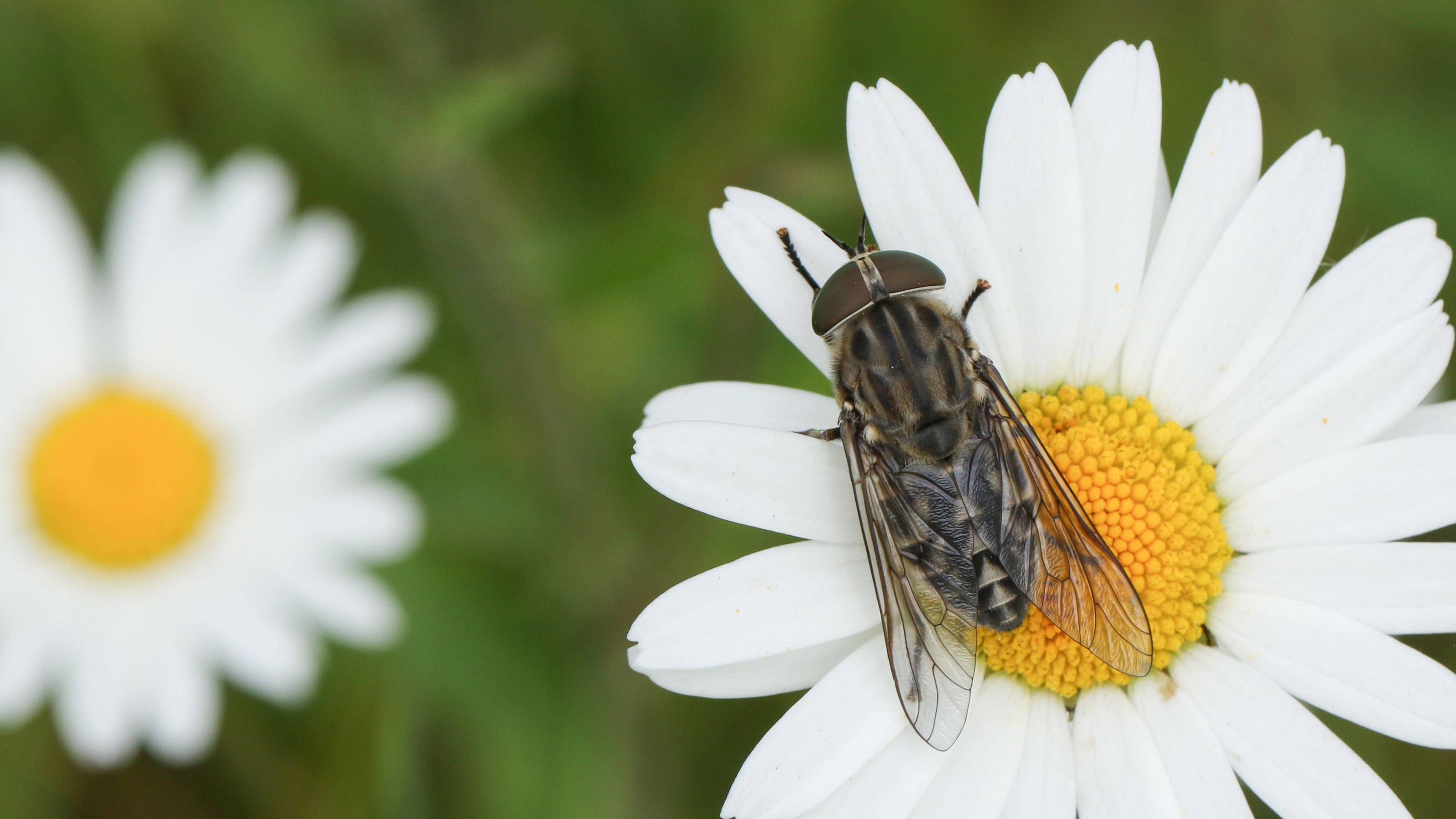
Design expertise in your inbox – from inspiring decorating ideas and beautiful celebrity homes to practical gardening advice and shopping round-ups.
You are now subscribed
Your newsletter sign-up was successful
Want to add more newsletters?

Twice a week
Homes&Gardens
The ultimate interior design resource from the world's leading experts - discover inspiring decorating ideas, color scheming know-how, garden inspiration and shopping expertise.

Once a week
In The Loop from Next In Design
Members of the Next in Design Circle will receive In the Loop, our weekly email filled with trade news, names to know and spotlight moments. Together we’re building a brighter design future.

Twice a week
Cucina
Whether you’re passionate about hosting exquisite dinners, experimenting with culinary trends, or perfecting your kitchen's design with timeless elegance and innovative functionality, this newsletter is here to inspire
When working out how to get rid of horse flies, the key is to learn what attracts and repels them, and what their daily habits are.
Then, much like when we are trying to keep flies out of the house or getting rid of mosquitoes, it will be much easier to make our spaces less inviting for them.
Not only are these pests a nuisance, but the bite of a female horse fly can produce a sharp burning pain caused by their scissor-like mouthparts cutting into the skin.
How to get rid of horse flies
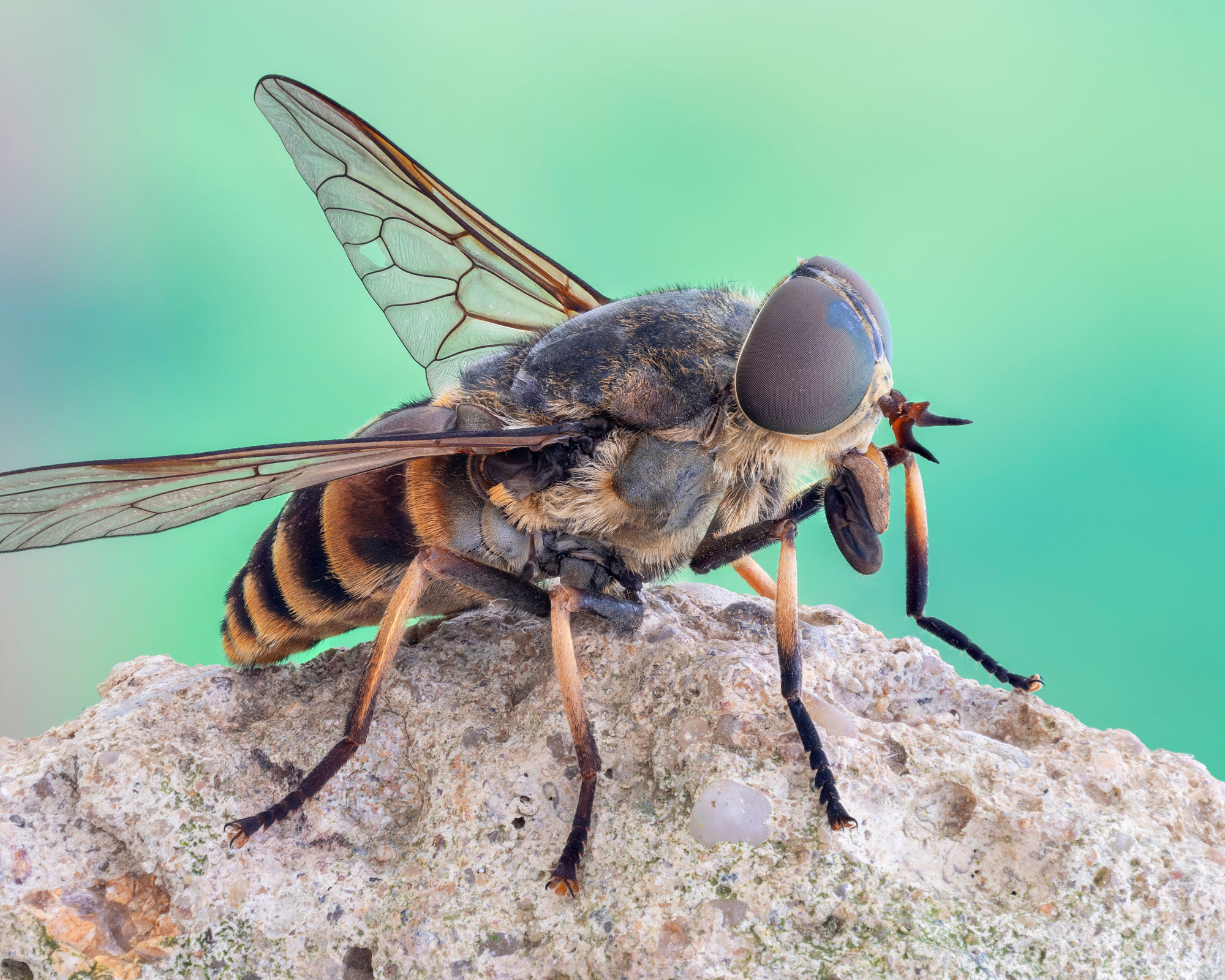
Note these five ways to repel horse flies so you can avoid nasty bites and finally relax in your outdoor spaces without having to fend off bugs.
1. Know what attracts them
When battling bothersome horse flies, it helps to understand their likes and dislikes. 'Horse flies are attracted to motion, carbon dioxide, heat, and shiny objects,' says Scot Hodges. They also like dark colors.
It's also worth learning about their behavior throughout the day. For instance, knowing that they tend to bite during the day and dislike shade – so hanging out in a shaded spot or spending more time out in your backyard in the evening might mean fewer encounters.
They also tend to reproduce in wet areas, such as foliage over water, so trimming any overhanging branches near a pool could help to reduce the chances of them breeding on your plot.
Design expertise in your inbox – from inspiring decorating ideas and beautiful celebrity homes to practical gardening advice and shopping round-ups.

Scot Hodges has more than 24 years experience in the Pest Control Industry serving in various operational capacities including sales, service, and management, and currently serves as the Director of Professional Development within Arrow Exterminators’ Arrow University. He earned his Associate Certified Entomologist (ACE) through the Entomological Society of America.
2. Make a homemade trap
Logan Cox from John The Plumber has had to deal with horse flies in customer homes on many occasions, and says that natural home remedies, like this homemade trap, have been some of the most effective.
'You can create homemade traps using a dark-colored bucket filled with water and a sweet substance like molasses or sugar. Place the trap in areas where horse flies are a problem, and they will be attracted to it and get trapped in the water,' he says.
3. Deter with essential oils
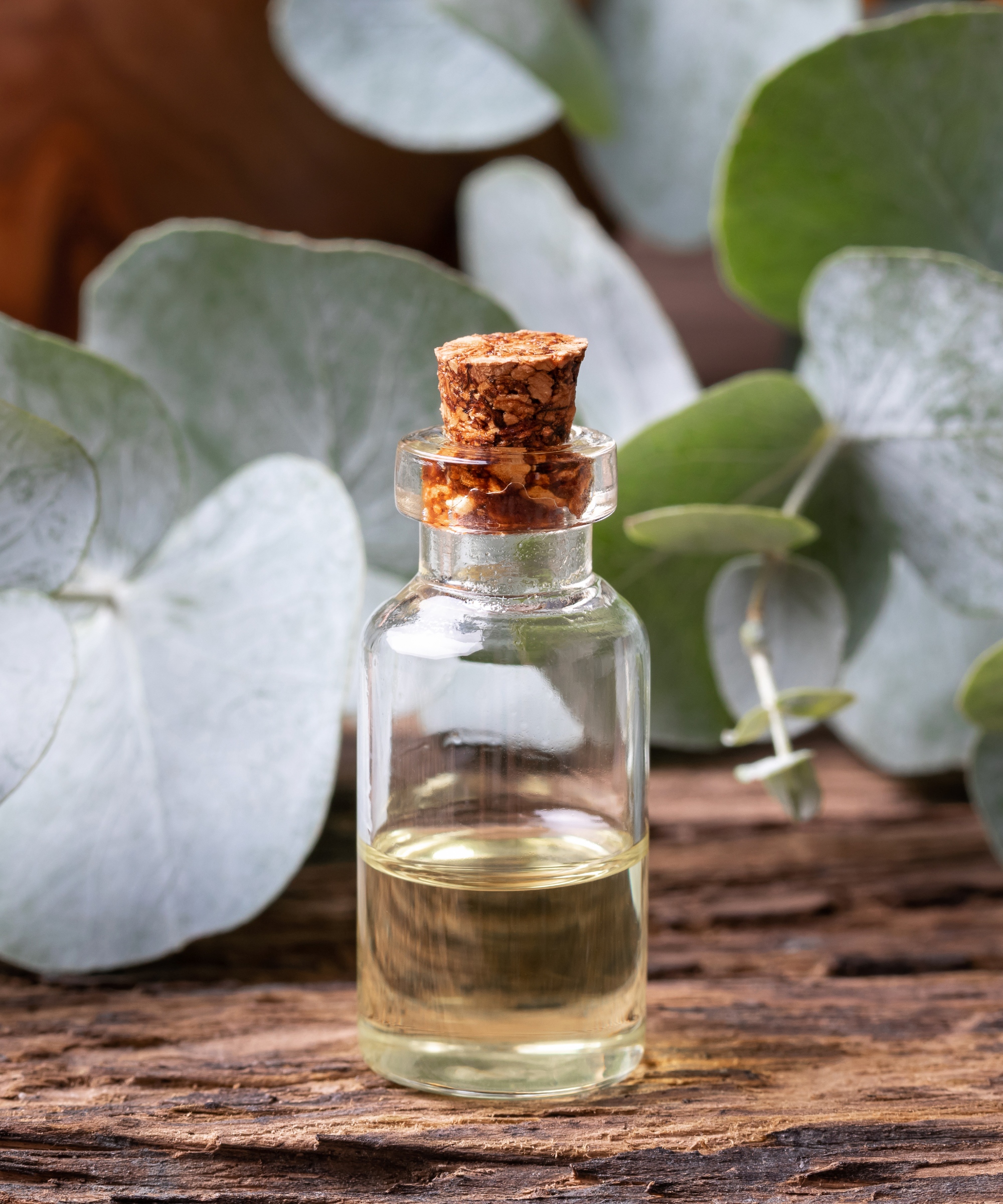
Make a homemade horse fly spray by diluting essential oils in water in a spray bottle to reduce the number of horse flies. 'Oils such as eucalyptus and peppermint are often cited as having insect-repelling properties,' says Dan Bailey from WikiLawn. Geranium oil and vinegar are also said to be effective deterrents, as is citronella, which will also help to keep wasps away from your porch.
This spray can be used on skin or clothing and will need to be reapplied regularly.
4. Try store-bought solutions
Alternatively, you may prefer to manage their presence by picking up some products designed for the job. Fly traps and sticky strips are available at local garden supply stores.
'These traps use visual and olfactory cues to attract and trap the flies effectively,' says Logan Cox. 'You can also look for commercial insecticide sprays specifically designed for horse flies. Follow the instructions on the product carefully and consider consulting a professional if you have concerns.'
5. Deter them from your pool
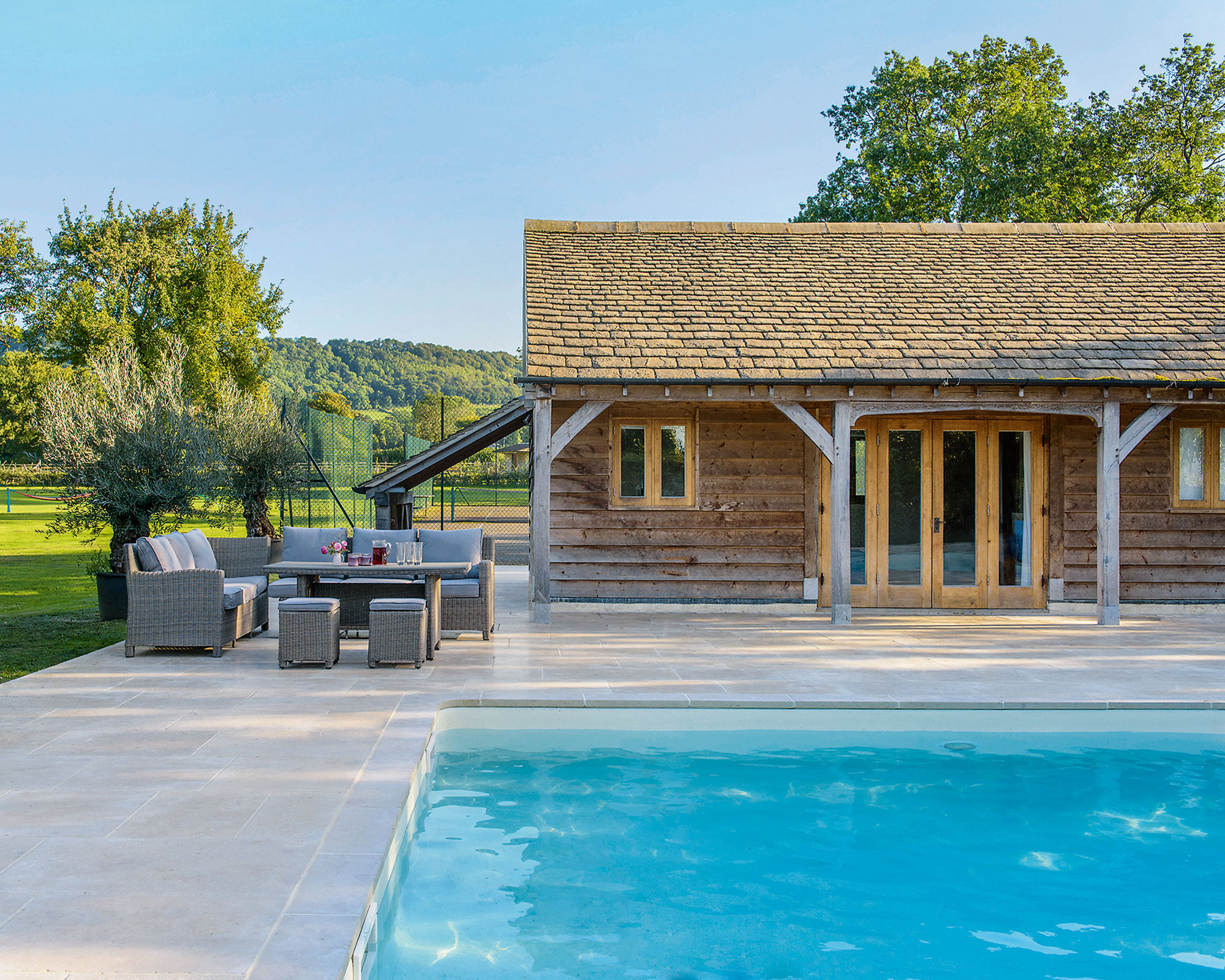
'Horse flies are specifically attracted to pools since the water surface is shiny, and there is lots of movement, water, sun, and heat,' explains Scot Hodges. And, unfortunately, keeping them away can feel like a never-ending battle.
One thing you can do to reduce the number of horse flies is to keep areas around your property well-drained, as they like to lay their eggs in low, shallow water. However, there may be other breeding sites nearby, and as Scot Hodges points out, they have a much longer life cycle than house flies and can live in the larval stage for months to a year. As a result, the breeding sites can be hard to identify, he says.
Mistakes to avoid
Avoid spraying insecticide around at random: 'Some people recommend broadly spraying insecticide around the property in the hope that you're going to knock down some of the horse flies,' says Zachary Smith, founder of The Pest Dude. 'But generally this not a good idea as it also kills beneficial insects.'
The pest control pro says your best bet is to add fly screens, at Amazon, around the pool, apply insect repellent regularly, wear long sleeves, and have some fun with a fly swatter.
How harmful are horse flies and why do their bites hurt so much?
The bites are painful due to the mouthparts of the fly – they have knife-like mouthparts and actually cut the skin to cause you to bleed, then they drink the blood, explains pest control pro Scot Hodges.
Mosquitoes and some other biting pests will have an anesthetic in their saliva which numbs the area of the bite temporarily, but the horse fly does not offer that courtesy, so you can feel the cut they make in your skin.
What smell do horse flies hate the most?
Citronella, vinegar, eucalyptus, geranium, peppermint and vinegar are all said to repel horse flies.
A final tip is to position fans strategically around outdoor seating areas or pools to create continual airflow. This will keep things cool and put off horse flies, as they aren't strong fliers.

Millie is a freelance writer and qualified interior designer based in Sheffield. She has many years of experience in the world of content and marketing, and previously worked as the head of Solved at Homes & Gardens. Before that, she worked in SEO at News UK in London and New York. She has a first-class degree in French and Italian from UCL and loves to weave decor into her home that reminds her of time spent living and studying in Bologna. Millie believes a clutter-free space that you love coming home every day is the best secret weapon for our well-being.
